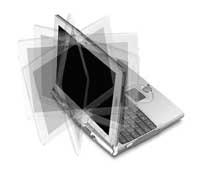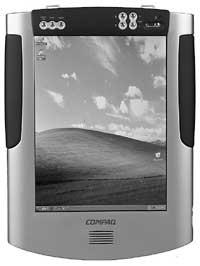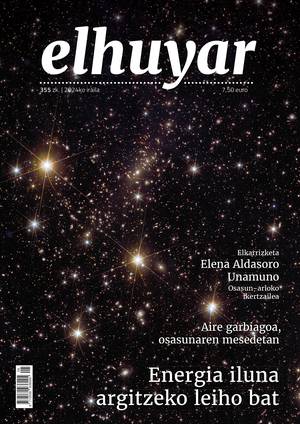Tablet PC Future of laptops
Elhuyar Fundazioa

The future is portability, it is getting cleaner. Mobile phones are increasingly used: Internet, email, agenda, etc. Laptops are getting smaller and lighter, and PocketPC comes with more tools. But if we use all together we go crazy, also, if we have most of the information on the home computer, we have to make a big transfer of information over and over again. The Tablet PC comes to fill that hole. In short, it is a desktop laptop, but not the laptops we have known so far: in this case, in addition to being a much smaller computer, we only need a screen, like the PocketPC, but with the capacity of a laptop.
There are currently several PC tablets on the market, but it is expected that the future will emerge in mid-year. It seems that they will have as operating system a specific Windows XP for these Tablet PCs and a custom Pentium processor. The biggest companies in the computer world have come together to create this new computer and are already developing the software and hardware you will need. Behind all this are companies like Compaq, Acer and Microsoft. The latter is one of the main drivers of the project and has a website with information about it (http://www.microsoft.com/windowsxp/ tabletpc/).
A really portable computer
The laptop has advanced very technologically: weight is becoming lighter, screen quality and excellent performance. But it is not a good instrument to use it standing when you wait for the bus, for example. That is why it is necessary to develop a truly sustainable tool. That's the goal of developers: portability.
The Tablet PC is a computer the size of a brochure with half the weight of current laptops. You can use all the applications that Windows supports when you have your own version of Windows, making your computer as useful as a laptop.

The interface is not new: it will use the stylus as an interface and voice knowledge. The use of the stylus is a known technology in the last ten years and therefore less strange for users. In this case, they have also added a novelty: “leaves the ink as ink.” That is the phrase they want to use. That is, that the machine does not convert the written by the user into text, but leaves it as written. In this way, it seems that we can take the observations we need in a more understandable way.
However, it seems that from the hardware point of view there will be several options: for example, one of the Tablets PCs that the Acer house is developing is the mix between the laptop and the Tablet PC for people to get used to. The tool looks like a laptop from the outside, but the screen can rotate horizontally as you like. Thus, if when closing the computer the screen is up, it can be used as a tablet PC.





